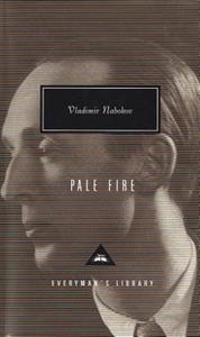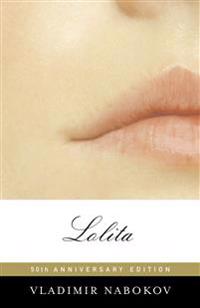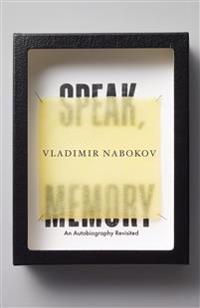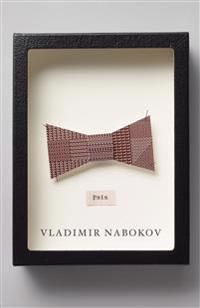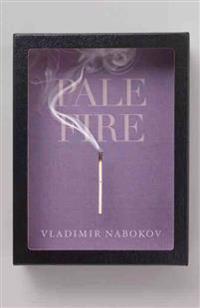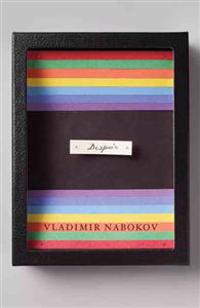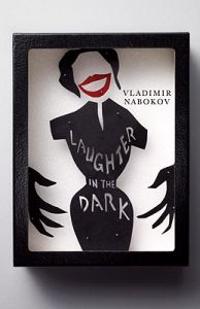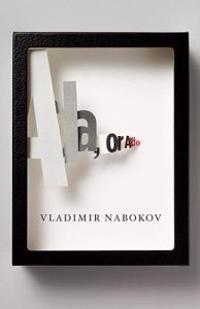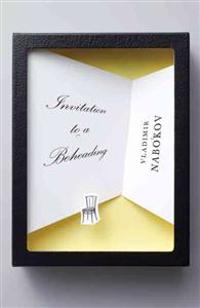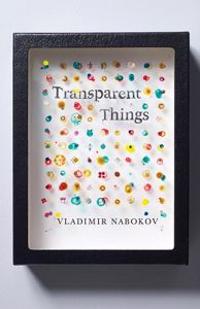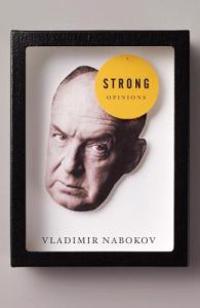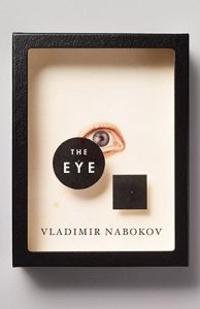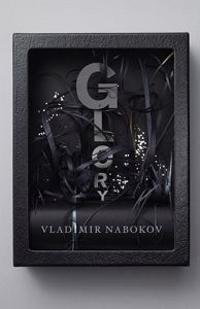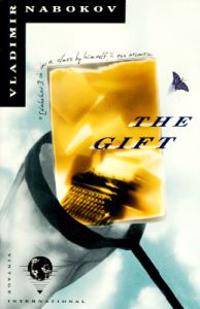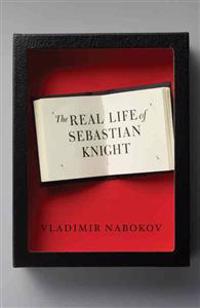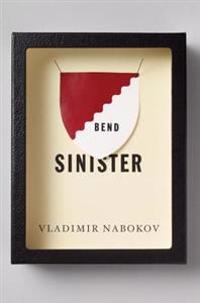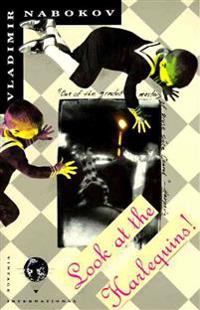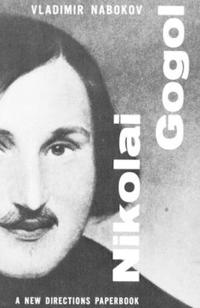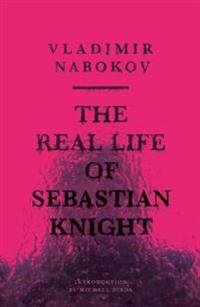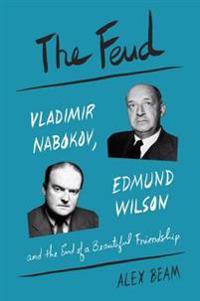Pale Fire (Inbunden)
avVladimir Nabokov, Richard Rorty
ISBN: 9780679410775 - UTGIVEN: 199203The urbane authority that Vladimir Nabokov brought to every word he ever wrote, and the ironic amusement he cultivated in response to being uprooted and politically exiled twice in his life, never found fuller expression than in "Pale Fire" published in 1962 after the critical and popular success of[...]
Lolita (Pocket)
avVladimir Vladimirovich Nabokov
ISBN: 9780679723165 - UTGIVEN: 198903Awe and exhiliration--along with heartbreak and mordant wit--abound in Lolita, Nabokov's most famous and controversial novel, which tells the story of the aging Humbert Humbert's obsessive, devouring, and doomed passion for the nymphet Dolores Haze. Lolita is also the story of a hypercivilized Europ[...]
Speak, Memory: An Autobiography Revisited (Häftad)
avVladimir Nabokov
ISBN: 9780679723394 - UTGIVEN: 198908Speak, Memory, first published in 1951 as Conclusive Evidence and then assiduously revised in 1966, is an elegant and rich evocation of Nabokov's life and times, even as it offers incisive insights into his major works, including Lolita, Pnin, Despair, The Gift, The Real Life of Sebastian Knight, an[...]
Pnin (Pocket)
avVladimir Vladimirovich Nabokov
ISBN: 9780679723417 - UTGIVEN: 198906Pnin is a professor of Russian at an American college who takes the wrong train to deliver a lecture in a language he cannot master. Pnin is a tireless lover who writes to his treacherous Liza: "A genius needs to keep so much in store, and thus cannot offer you the whole of himself as I do." Pnin is[...]
Pale Fire (Häftad)
avVladimir Nabokov
ISBN: 9780679723424 - UTGIVEN: 198904In Pale Fire Nabokov offers a cornucopia of deceptive pleasures: a 999-line poem by the reclusive genius John Shade; an adoring foreword and commentary by Shade's self-styled Boswell, Dr. Charles Kinbote; a darkly comic novel of suspense, literary idolatry and one-upmanship, and political intrigue. [...]
Despair (Häftad)
avVladimir Nabokov
ISBN: 9780679723431 - UTGIVEN: 198905Extensively revised by Nabokov in 1965--thirty years after its original publication--Despair is the wickedly inventive and richly derisive story of Hermann, a man who undertakes the perfect crime--his own murder.[...]
Laughter in the Dark (Häftad)
avVladimir Nabokov
ISBN: 9780679724506 - UTGIVEN: 1989-12Albinus, a respectable, middle-aged man and aspiring filmmaker, abandons his wife for a lover half his age: Margot, who wants to become a movie star herself. When Albinus introduces her to Rex, an American movie producer, disaster ensues. What emerges is an elegantly sardonic and irresistibly ironic[...]
Ada or Ardor a Family Chronicle (Pocket)
avVladimir Vladimirovich Nabokov
ISBN: 9780679725220 - UTGIVEN: 199002Published two weeks after his seventieth birthday, Ada, or Ardor is one of Nabokov's greatest masterpieces, the glorious culmination of his career as a novelist. It tells a love story troubled by incest. But more: it is also at once a fairy tale, epic, philosophical treatise on the nature of time,[...]
Invitation to a Beheading (Häftad)
avVladimir Nabokov
ISBN: 9780679725312 - UTGIVEN: 198909Like Kafka's The Castle, Invitation to a Beheading embodies a vision of a bizarre and irrational world. In an unnamed dream country, the young man Cincinnatus C. is condemned to death by beheading for "gnostical turpitude." an imaginary crime that defies definition. Cincinnatus spends his last days [...]
Transparent Things (Pocket)
avVladimir Vladimirovich Nabokov
ISBN: 9780679725411 - UTGIVEN: 1989-10"Transparent Things revolves around the four visits of the hero--sullen, gawky Hugh Person--to Switzerland . . . As a young publisher, Hugh is sent to interview R., falls in love with Armande on the way, wrests her, after multiple humiliations, from a grinning Scandinavian and returns to NY with h[...]
Strong Opinions (Pocket)
avVladimir Vladimirovich Nabokov
ISBN: 9780679726098 - UTGIVEN: 1990-03In this collection of interviews, articles, and editorials, Nabokov ranges over his life, art, education, politics, literature, movies, and modern times, among other subjects. Strong Opinions offers his trenchant, witty, and always engaging views on everything from the Russian Revolution to the cor[...]
Mary (Häftad)
avVladimir Nabokov
ISBN: 9780679726203 - UTGIVEN: 1989-11Mary is a gripping tale of youth, first love, and nostalgia--Nabokov's first novel. In a Berlin rooming house filled with an assortment of seriocomic Russian émigrés, Lev Ganin, a vigorous young officer poised between his past and his future, relives his first love affair. His memories of Mary a[...]
The Eye (Pocket)
avVladimir Vladimirovich Nabokov
ISBN: 9780679727231 - UTGIVEN: 199009Nabokov's fourth novel, The Eye is as much a farcical detective story as it is a profoundly refractive tale about the vicissitudes of identities and appearances. Nabokov's protagonist, Smurov, is a lovelorn, excruciatingly self-conscious Russian émigré living in prewar Berlin, who commits suic[...]
Glory (Häftad)
avVladimir Nabokov
ISBN: 9780679727248 - UTGIVEN: 199111Glory is the wryly ironic story of Martin Edelweiss, a twenty-two-year-old Russian emigre of no account, who is in love with a girl who refuses to marry him. Convinced that his life is about to be wasted and hoping to impress his love, he embarks on a "perilous, daredevil project"--an illegal attemp[...]
The Gift (Häftad)
avVladimir Nabokov
ISBN: 9780679727255 - UTGIVEN: 1991-05The Gift is the last of the novels Nabokov wrote in his native Russian and the crowning achievement of that period in his literary career. It is also his ode to Russian literature, evoking the works of Pushkin, Gogol, and others in the course of its narrative: the story of Fyodor Godunov-Cherdynts[...]
The Real Life of Sebastian Knight (Pocket)
avVladimir Vladimirovich Nabokov
ISBN: 9780679727262 - UTGIVEN: 199202"Nabokov writes prose the only way it should be written, that is, ecstatically." -- John UpdikeThe Real Life of Sebastian Knight is a perversely magical literary detective story -- subtle, intricate, leading to a tantalizing climax -- about the mysterious life of a famous writer. Many people knew th[...]
Bend Sinister (Häftad)
avVladimir Nabokov
ISBN: 9780679727279 - UTGIVEN: 199004The first novel Nabokov wrote while living in America and the most overtly political novel he ever wrote, Bend Sinister is a modern classic. While it is filled with veiled puns and characteristically delightful wordplay, it is, first and foremost, a haunting and compelling narrative about a civiliz[...]
The Annotated Lolita (Pocket)
avVladimir Vladimirovich Nabokov
ISBN: 9780679727293 - UTGIVEN: 1991-04-01The textural discussion accompanying this novel examines the thematic and technical elements which make it a literary classic[...]
Vladimir Nabokov (Pocket)
avBrian Boyd
ISBN: 9780691024707 - UTGIVEN: 1993-01This first major critical biography of Vladimir Nabokov, one of the greatest of twentieth-century writers, finally allows us full access to the dramatic details of his life and the depths of his art. An intensely private man, Nabokov was uprooted first by the Russian Revolution and then by World War[...]
Vladimir Nabokov (Pocket)
avBrian Boyd
ISBN: 9780691024714 - UTGIVEN: 1993-01This story of Nabokov's life continues with his arrival in the United States in 1940. He found that supporting himself and his family was not easy - until the astonishing success of Lolita catapulted him to world fame and financial security.[...]
The Real Life of Sebastian Knight (Häftad)
avVladimir Nabokov
ISBN: 9780811217507 - UTGIVEN: 2008-07The Feud: Vladimir Nabokov, Edmund Wilson, and the End of a Beautiful Friendship
ISBN: 9781101870228 - UTGIVEN: 2016-12The Feud is the deliciously ironic (and sad) tale of how two literary giants destroyed their friendship in a fit of mutual pique and egomania.
In 1940, Edmund Wilson was the undisputed big dog of American letters. Vladimir Nabokov was a near-penniless Russian exile seeking asylum in the States. [...]

